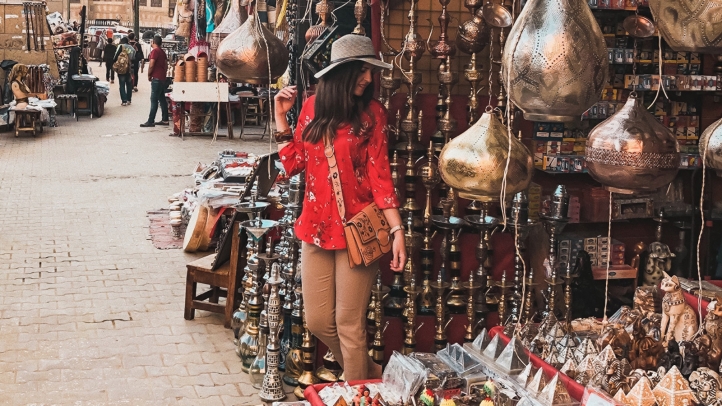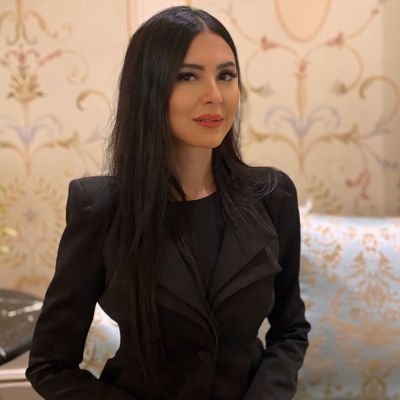Discover the Historic City of Cairo in Ramadan
Chief Concierge Sherif Youssry shares ancient myths and traditions of the Holy Month of Ramadan







Ramadan is a time of fasting - Muslims around the world refrain from eating from sunrise to sunset to practice self-discipline and empathy for those who are less fortunate. It is a beautiful month to reflect on what is important, to give thanks and gratitude and importantly to connect with family and friends.
This vibrant city comes to life after Iftar (sunset) and one can find Ramadan-themed tents set up all over the city with Egyptian folkloric entertainment every night.
Four Seasons Hotel Cairo at The First Residence Chief Concierge Sherif Youssry shares some of the ancient and cultural Ramadan facts in Cairo.
Shopping for Ramadan Lanterns
Enjoy shopping and browse around the old, historic streets of Islamic Cairo including Mu’ezz Eddin Street, Azhar and Khan El Khalili areas, Fostat in Old Cairo, and the famous gates and walls of Islamic Cairo for beautiful fanous or Ramadan lanterns.
Visible only during the Holy Month, this is a distinctly Egyptian tradition with every home using them as decoration and children receiving small versions to play and sing Ramadan sings with.
“The tradition of the fanous dates to the Fatimid era, and the lanterns were often made out of copper,” says Chief Concierge Youssry. “The less expensive ones were made out of tin and coloured glass with a wooden base to place a candle in it with the addition of decorations and hand engravings."
To see a large display lanterns, Youssry advises to head towards the 11th century city gate of Bab Zuweilah in the vicinity of the Islamic Museum and next to the Tentmaker’s Bazaar, where the shops are transformed into the Street of Lanterns during Ramadan.
The Cannon and Breaking the Fast
The firing of the cannon from atop the Citadel is a tradition that all Egyptians wait for to break their fast at sunset. An tradition started by Khedive Mohamed Ali (1805-1848) when he ordered a number of cannons for the Egyptian army, and so it happened that one cannon was accidentally fired during sunset in Ramadan, people then thought that this was a new tradition ordered by the Khedive. It may not be heard today all over the city, but locals still enjoy turning on their TV sets to watch the cannon being fired before they all sit down to eat.
Listen Out for The Drummer
Each morning during the Islamic Holy Month of Ramadan, an hour or two before dawn, this tradition dates back to the Abbasid era, when drummers also known as mesharati in Arabic tour the streets, hammering out a repetitive beat and singing a rhyming couplet to wake people up to have their Sohour (pre-sunrise meal). This centuries-old tradition keeps going as it carries the spiritual aspect of old Ramadan days.
Ramadan Desserts
The month of Ramadan is also associated with desserts where most pastry shops and homes innovate in their creations of desserts. Executive Sous Chef Helmy Mohamed adds his list of popular sweet treats that are introduced throughout the Hotel and First Nile Boat outlets. “Baklava, which is made of phyllo dough and is filled with either nuts, cream or ricotta cheese; basbosa, a famous Egyptian dessert made from semolina and sweetened with either orange flower or rose water," lists Chef Helmy. "Other popular desserts include konafa with shredded dough that also is filled with nuts or cream; or qatayif, a pancake like dough stuffed with nuts and then deep fried.”
For the full Ramadan dessert experience head to La Gourmandise and place an order for take-away to celebrate with family and friends.

Cairo, 12311
Egypt

Cairo, 12311
Egypt



 @FourSeasonsPR
@FourSeasonsPR